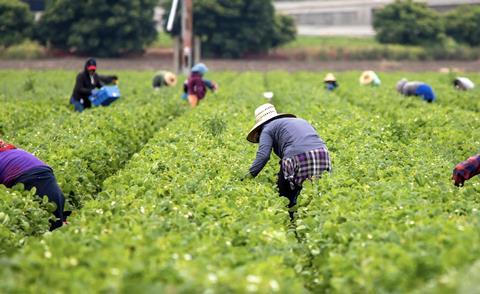Some US$18m will be made available as it joins the Zero Hunger Private Sector Pledge
Joining the Zero Hunger Private Sector Pledge, East-West Seed (EWS) has announced an increase in funding to its corporate foundation East-West Seed Knowledge Transfer Foundation (EWS-KT).

The move brings its total pledged funding to US$18m in support of livelihood and nutritional security over the next five years.
This milestone coincides with the 40th anniversary of EWS and builds on EWS-KT’s five-year strategy and ambition to train 1m farmers in Asia and Africa by 2025.
EWS-KT operates in underdeveloped markets where EWS has a long-term vision to grow new markets. In these areas, farmers struggle with low yields and poor connectivity to the information, markets and technology needed to transform their vegetable farming into thriving businesses.
EWS-KT’s training model develops farmer capacity, thus stimulating demand for better-quality agricultural inputs, which further catalyses the development of innovative and competitive markets.
This sustainably increases farm level income and makes a wider variety of affordable, safe-to-eat vegetables available for lower-income consumers.
“We have consolidated several decades’ worth of learning points to address poverty, malnutrition and hunger,” explained Rutger Groot, board chair of EWS-KT, “and these lessons align with sustainable business practices.
”For example, we know that there is a strong commercial case for engagement with women as effective market actors in an agribusiness context.
”We also seek to reinvolve young farmers in agricultural supply chains,” Groot continued. ”Our experience shows that youths are less risk averse, and their participation accelerates the growth of markets.
”We plan to invest a portion of our pledge into technology, including mobile and online platforms, to provide training to farmers. We want to expand use of our mobile data app that tracks return on investment, yield, income and other results so we can help farmers plan their business and reduce post-harvest loss.
”In fact, we firmly believe that farmers, even those who are resource constrained, can learn to use and benefit from technology throughout their farming projects,” Groot added.
Douwe Zijp, CEO of EWS, spoke about the urgency of the pledge. “We are deeply committed to the smallholder farmers at the centre of our work, having invested in local capacity building for 20 years.
”A global pandemic, supply chain disruptions and price inflation for essential commodities have had an economically and environmentally destabilising impact on food systems,” he outlined. ”At the same time, farmers need to feed more people with fewer resources, which is particularly challenging to do in complex environments like Nigeria and Myanmar.
”As we celebrate 40 years of steadfast support for farmers, we can think of no better way to honour their incredible resilience than by increasing our commitment to ensure they can sustainably supply local communities with a diverse, healthy food basket that includes nutritious vegetables.”
The Zero Hunger Private Sector Pledge is an opportunity for companies to align their investments with new evidence and commitments by donors, governments and global institutions to end hunger and nourish the future by 2030.
As of 24 May 2022, global companies in 48 countries have pledged US$458m as part of the Zero Hunger Private Sector Pledge.
“I believe companies like East-West Seed can contribute to solving the world’s challenges,” noted Lawrence Haddad, executive director of GAIN and chair of the UN Food Systems Summit Action Track 1.
“However, big issues like poverty, nutritional security, livelihood development and climate change cannot be solved by just one organisation. It requires us to act together, and it’s one of the reasons we are excited to welcome East-West Seed into our group of more than 43 companies that have made this pledge.
”This bold commitment is exactly what’s needed right now – every new pledge for the Zero Hunger campaign motivates more private-sector leaders to step up in the campaign to fight hunger,” Haddad added.



